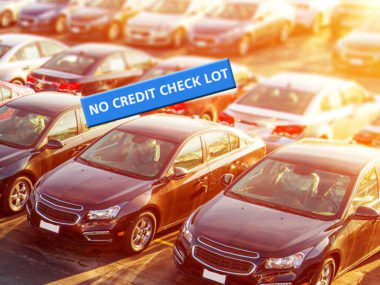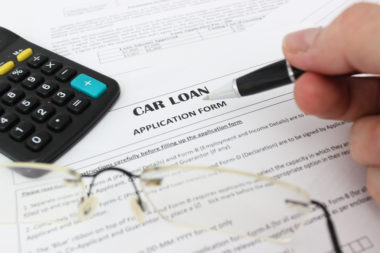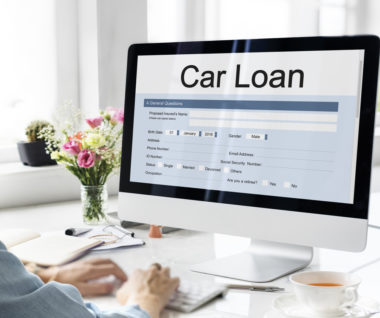Selling or buying a car can be a complicated process. If you try to sell before you have paid off your initial car loan, there is a lien on the car from the lender. That means the lender technically has a claim of ownership and the title isn’t yours to transfer. That doesn’t mean you can’t sell the car, even if the loan is upside down; it just means the process is more complicated.
Table of Contents
Selling to an Auto Dealer
One of the easiest ways of selling a car you still owe is selling to an auto dealer. It’s not a trade-in since you don’t actually own the car.
Auto dealers have completed plenty of these transactions. They’ll take care of the appropriate paperwork. If the dealer is not your lender, you give the dealership power of attorney and they contact the lender.
Depending on the dealer, you may not have to buy another car from them as part of the deal. This is especially true of dealers that mainly work with used cars, as they can either sell the car or put it to auction. The dealer will pay the existing balance on your loan, and write you a check for any balance leftover from the deal. Be sure you receive documentation that your lien is satisfied — that is, the loan has been paid off — before you leave.
Selling to a Private Buyer
If, however, you are trying to make a larger profit than a dealer will afford, you will want to sell the car yourself. However, you will have to ensure all the sale paperwork is legitimate yourself.
Your first step is determining exactly how much you have left to pay off. Because of interest rate changes, this can fluctuate frequently. Call your lender and ask what your official payoff amount is. Since you won’t be selling the car until after you pay off the loan, this is important. It’s what you will pay either before or during the title transfer. Request a payoff letter to have the amount in writing. The letter will tell you where to wire the money and what types of payment are accepted.
While on the phone with the lender, ask if they have any special procedures for selling to a third party while the car is still financed. There may be early payoff penalties, or they could have an office where you and the third party can meet to complete the transaction, easing the selling process.
Disclose Your Lien to the Potential Buyer
When trying to sell your car, it’s important to inform potential buyers that there is still a lien on the car. This may make some buyers wary, while others may simply want to be present when you pay off the loan and the title is transferred. As stated before, a lien is a lender’s legal right to the car until the loan is paid off. For example, if you borrowed money through a bank, they would legally claim the car as well as the title.
If the buyer wishes to remove the lienholder, either you or the buyer should consider paying off the remaining auto loan. Be sure to check the lien on the car by doing one of the following:
- Checking the records at the DMV;
- Asking the dealership or previous seller for paperwork;
- View the vehicle title;
- Get a vehicle history check from a reputable source.
Prepare for the Sale
Prep work here will make the entire process go smoother. Since you won’t be working with a title that’s been fully paid off in advance, you’ll need to use the buyer’s money to pay off the loan while transferring the title to them at the same time.
Doing this at the bank or lender’s office can give the buyer peace of mind, since private sales hold risk for both the buyer and the seller. The buyer can watch you pay off the loan with their money and receive the title.
Consider using an escrow service if your lender or bank’s office is not available. The service will take your payment from the buyer and hold the title from you until the transaction is complete. For a fee, they act as the middleman to ensure money is exchanged for the title.
Transfer the Car Title
Once the money has been used to pay the loan, the title is considered clear. As mentioned, the title could be transferred to the escrow service, which will then send it to the buyer; it can be given directly to the buyer; or it can be sent by the lender to the buyer. If the buyer is financing the car, your lender will send the title to the buyer’s lender.
The seller must sign the title to release it to the buyer. Then the buyer must take it to the DMV and obtain a new registration and title. Some states might require more paperwork, so it’s good practice to submit either a bill of sale or a transfer of ownership form.
Paying Off Your Car Loan Before Selling
Paying off the loan, even if it still has a high amount, can make selling the car easier. You won’t have to go through the steps of using the buyer’s money to pay off the loan. Even if you need to get another loan, such as a peer-to-peer loan, to pay off your auto loan, it could be the difference between selling the car and being stuck with a vehicle you don’t want.
In this scenario, you use the second loan to pay off the auto loan, and the buyer’s money to pay off the second loan. Because it will be short term, interest won’t have time to accrue. The other major benefit is that you will already have the title, and can immediately hand it over to the buyer in exchange for cash.
While you can sell a car with a lien on it, the transaction process could prove tricky. It’s important to understand your personal budget when considering paying off the loan, as well as the car’s total value. Be careful with the transaction, and use a third party if possible. The buyer will have a car, and you will have your money.
Image Source: https://depositphotos.com/





